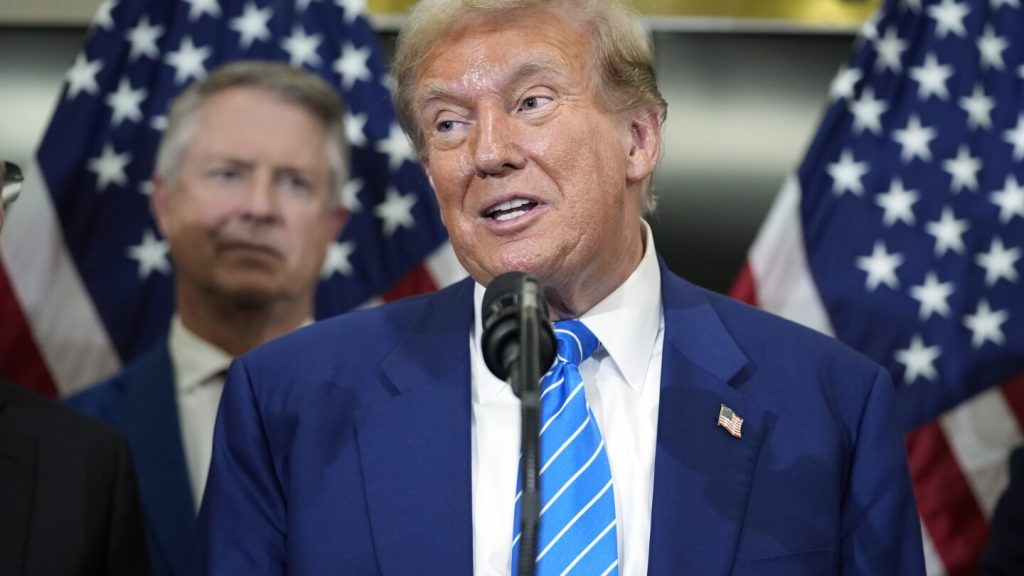Former President Donald Trump and President Joe Biden’s chief of staff, Jeffrey Zients, recently met with the Business Roundtable, an influential group of CEOs in Washington. Trump expressed his desire to further cut the corporate tax rate, which he had lowered during his time in office, suggesting a reduction to 20%. Zients, on the other hand, emphasized the importance of global alliances in fostering trust for U.S. capitalism, taking a jab at Trump’s previous policies of tariffs and trying to control Fed policies. The meeting comes as Biden and Trump are gearing up for a potential 2024 election rematch, with differing views on taxes and the economy.
The Business Roundtable has made low taxes its top legislative priority and announced plans to spend $10 million on a campaign to keep the corporate tax rate at 21%. The group is advocating for business-friendly changes to the U.S. tax code and seeking to extend tax incentives for research and development. Part of the tax cuts signed into law by Trump in 2017 is set to expire after 2025, potentially raising taxes for many households. This sets the stage for a showdown between Democrats and Republicans on how to rewrite the tax code, with both parties aiming to preserve cuts for those earning under $400,000.
Recent economic research indicates that Trump’s corporate tax cuts did boost business investment, but not enough to cover the cost of those cuts. The Congressional Budget Office estimates that extending the tax cuts would cost $4.9 trillion over 10 years, contributing to higher budget deficits. Business leaders argue that lower taxes make them more competitive globally, allowing for increased hiring and technological investments. However, some CEOs have expressed concerns that higher corporate taxes would lead to consumer price increases, limit wage growth, and impact shareholders.
Biden’s budget proposal seeks to raise corporate taxes by nearly $2.2 trillion over 10 years, with a significant portion of the new revenue coming from a reset of the corporate tax rate to 28%. Despite the increase, this rate would still be lower than the 35% inherited by Trump. Trump has criticized Biden’s tax plans, warning that higher corporate taxes would lead to job losses and harm the nation. The contrasting views of the two leaders on taxes and the economy are likely to be central themes in the upcoming election campaigns, as they present starkly different visions for the future of U.S. tax policy and economic growth. It remains to be seen how these debates will shape the direction of the country moving forward.


